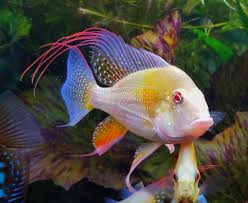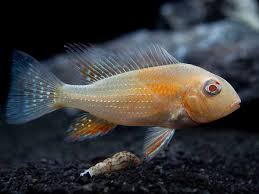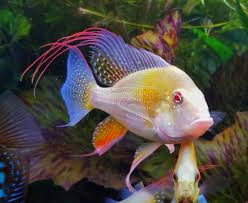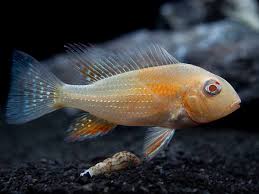Albino Threadfin Acara (40-50mm)
Albino Threadfin Acara (40-50mm)
check_circle Fast Shipping
check_circle Quality Products
check_circle Affordable Price
Reach out to us on ''available to order'' items via WhatsApp or email
Out of stock
Couldn't load pickup availability
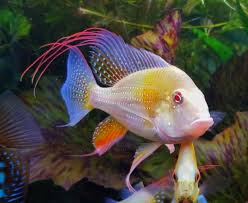
Albino Threadfin Acara (40-50mm)
package_2
Product Description
Product Description
All our fish, shrimp and corals are bagged with fresh oxygen as well as a heat pack in winter.
When ordering livestock please select the box size and add it to your cart for accurate overnight (1-2 days) shipping costs. A small box can take 1-2 bags and a medium box 6 bags. One bag fits max 10 small (1-3cm) fish or max 2 medium (3-5cm) fish or max 1 large (>5cm) fish.
ONE SPECIES PER BAG. Eg: One bag of 10 neon tetra.
Albino Threadfin Acara (Acarichthys heckelii 'Albino')
Description:
-
Appearance:
- Body: Elongated and laterally compressed with a graceful, streamlined shape.
- Color: Pale pinkish-white to yellowish body with red or orange accents, depending on the specific albino variant.
- Fins: Long, thread-like extensions on the dorsal and anal fins, giving it a delicate, flowing appearance.
- Size: Typically reaches about 6-8 inches (15-20 cm) in length.
- Eyes: Large and prominent, adding to its distinctive look.
-
Behavior:
- Generally peaceful but may exhibit territorial behavior, especially during breeding.
- Can be kept with other community fish as long as tank mates are not overly aggressive.
Care Requirements:
-
Tank Size:
- Minimum of 30 gallons (114 liters) for a single fish; larger tanks are preferable for a pair or group.
-
Water Parameters:
- Temperature: 74-82°F (23-28°C).
- pH: 6.0-7.5.
- Hardness: Soft to moderately hard water.
- Filtration: Good filtration is important to maintain water quality.
-
Tank Setup:
- Aquascaping: Provide plenty of hiding spots and territories using rocks, driftwood, and plants.
- Substrate: A soft substrate like sand or fine gravel is ideal.
-
Diet:
- Omnivorous; feed a varied diet including high-quality pellets, flakes, live or frozen foods such as worms, brine shrimp, and small crustaceans.
- Supplement with vegetable matter occasionally.
-
Behavioral Considerations:
- Generally peaceful but can be territorial; provide enough space and hiding spots.
- Avoid aggressive or overly large tank mates.
-
Tank Maintenance:
- Perform regular water changes (20-30% weekly) to keep water quality high.
- Monitor water parameters regularly.
-
Health Care:
- Watch for signs of stress or disease, such as changes in behavior, loss of appetite, or visible lesions.
- Quarantine new arrivals to prevent the introduction of diseases.
